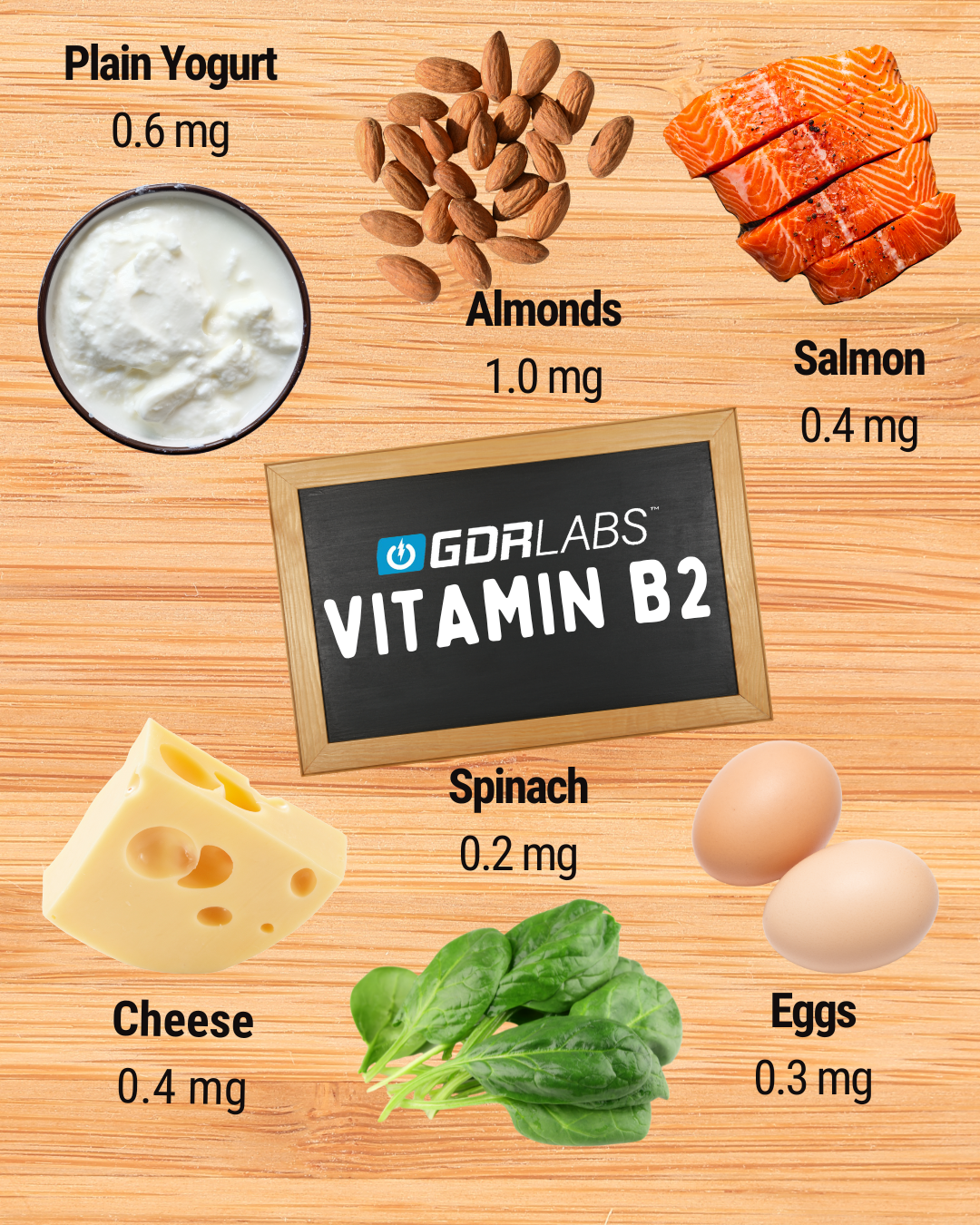Read This Before You Supplement Your Vitamin B2!Updated 7 months ago
Better From Whole Foods... Read This Before You Supplement Your Vitamin B2!

When it comes to fueling your body’s energy systems and keeping your cells functioning at their best, Vitamin B2 (or riboflavin) plays a significant role. This essential vitamin is an unsung hero and quiet powerhouse, supporting metabolism, skin health, eye function, and even boosting antioxidant protection.
While supplements exist for vitamin B2, getting it through natural food sources offers more than just the vitamin itself — it brings with it a nutrient-rich diet that supports your overall health.
What Is Vitamin B2 and Why Do I Need It?
Vitamin B2 is a water-soluble, or “it dissolves in water,” B vitamin that helps the body’s functions, like:
- Converting food into energy through its role in metabolizing carbohydrates, fats, and proteins
- Protecting cells from oxidative stress by acting as a cofactor for antioxidant enzymes
- Maintaining healthy skin and eyes
- Supporting nervous system function
This wonder nutrient also helps the body activate and USE other B vitamins, especially B6 and niacin (B3), making it a key player in the B-vitamin family.
So, How Much Vitamin B2 Do I Need?
According to the Recommended Dietary Allowance (RDA):
- Men (adults): 1.3 mg per day
- Women (adults): 1.1 mg per day
- Pregnant women: 1.4 mg per day
- Lactating women: 1.6 mg per day
- Infants (0-6 months): 0.3 mg/day (Adequate Intake - AI).
- Infants (7-12 months): 0.4 mg/day (AI).
- Children (1-3 years): 0.5 mg/day.
- Children (4-8 years): 0.6 mg/day.
- Children (9-13 years): 0.9 mg/day.
Because riboflavin is water-soluble, your body doesn’t store it — you need to ensure you consume it daily.
Why Are Natural Sources Best?
Supplements are meant to do just that, supplement. They can fill gaps when needed, but food-based riboflavin has added benefits, such as fiber, protein, and other synergistic nutrients that support digestion, immune health, and energy levels.
Natural sources of vitamin B2 also reduce the risk of getting too much, which can occasionally happen with synthetic supplementation. However, at present, there is little to no concern over toxicity with this nutrient, as no adverse effects have been shown.
Top Natural Food Sources of Vitamin B2:
Looking to hit your daily target without supplementation? Here are some foods that are excellent sources of riboflavin:
1. Eggs
- One large egg provides about 0.2 mg of riboflavin.
- An easy breakfast staple that can be worked into your diet more easily.
2. Dairy Products
- Milk, yogurt, and cheese are all rich in B2!
- One cup of milk has about 0.4–0.5 mg. And who doesn’t like cheese?
3. Lean Meats and Organ Meats
- Beef liver is among the highest sources, offering over 2.5 mg per 3-ounce serving!
- Lean beef and chicken also contribute smaller amounts. Hey… many people love organ meat, and more power to them!
4. Fish
- Salmon, mackerel, and trout provide both riboflavin and healthy omega-3s. This one’s a no-brainer; fish like these greatly benefit your overall nutrition and health.
5. Almonds
- A handful (1 oz) of almonds gives about 0.3 mg of B2… and they’re a great snack with protein!
6. Leafy Greens and Mushrooms
- Spinach, kale, and portobello mushrooms contain modest but helpful amounts of many other beneficial phytochemicals!
- Mushrooms especially shine with up to 0.5 mg per cup when cooked, so whip up that chicken marsala.
Easy Ways to Boost Your B2 Intake
- Start your day with eggs, yogurt, or milk.
- Add almonds or yogurt as a mid-day snack.
- Include eggs, spinach, or grilled salmon/lean meats in your lunch or dinner.
By building meals around these natural options, you’re not just getting B2 — you’re getting a healthier, more balanced diet overall! Stay tuned for the next in our B-series: Niacin (B3)!